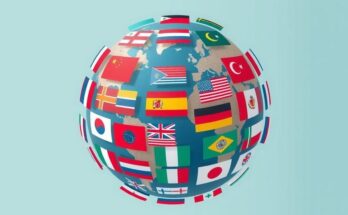The editorial criticizes Senator Marco Rubio’s proposal to sanction nations using Cuban medical workers, emphasizing its detrimental impact on healthcare access, particularly for Jamaica. It highlights CARICOM’s efforts to collectively address this issue, advocating for the mutual benefits of Cuban medical programs in the region. The piece calls for a unified approach to protect vulnerable populations from the consequences of such sanctions, underlining the necessity of continued collaboration in healthcare initiatives.
Editorial | Leave Cuban Medics
Senator Marco Rubio’s proposal to impose sanctions on countries utilizing Cuban medical professionals is profoundly insensitive and detrimental. If he possessed a modicum of compassion, he would promptly withdraw this policy, which negatively impacts not only Cuba but also impoverished communities in Africa, Asia, and the Americas, including Caribbean nations like Jamaica. The repercussions could lead to needless loss of life and could inadvertently increase motivations for illegal immigration to the United States, an issue the Trump administration opposes.
The Caribbean Community (CARICOM) is appropriately addressing this situation by collectively communicating with the U.S. administration. Trinidad and Tobago’s Foreign Minister, Amery Browne, indicated that CARICOM foreign ministers are coordinating a meeting with the U.S. special envoy for the region, scheduled for the second week of March. This strategic collaboration serves as a crucial test of CARICOM’s ability to present a united front when faced with the unpredictable nature of the Trump administration’s foreign policy.
The composition of CARICOM’s delegation for the Washington discussions remains uncertain. It is anticipated they will engage with Barbara A. Feinstein, who is still serving as the deputy assistant secretary for Caribbean Affairs and Haiti at the State Department. Given the current political upheaval in the Trump administration, changes in personnel could occur before this meeting takes place.
Recently, Senator Rubio announced the expansion of U.S. visa restrictions to include officials involved in Cuba’s overseas medical program, implying potential sanctions against authorities in over 50 countries, including Jamaica, where approximately 25,000 Cuban health professionals provide crucial services. The U.S. State Department claims that Cuba profits from forced labor within these missions, which allegedly detracts from the care available to Cubans.
This interpretation, however, does not align with prevailing views on the mutual benefit of the Cuban medical program, especially in Jamaica, which faces a severe shortage of medical personnel. With many Jamaican health workers migrating to developed countries, the medical brigades provide essential services in a nation with a doctor-to-population ratio of 0.7 per 1,000, far below the global average of 3.
In light of this context, Jamaica participates in Cuba’s medical mission scheme, allowing healthcare professionals to work abroad while retaining their positions in the Cuban health system. In 2023, Cuba is estimated to earn over $6.3 billion from these types of arrangements. While some may perceive these missions as a positive for the Cuban government, they significantly benefit the healthcare systems of participating nations, including Jamaica.
The socioeconomic implications of these medical professionals are noticeable in Jamaica, where thousands of patients receive essential treatments, such as cataract surgeries, due to their presence. There is no substantiated evidence indicating that these Cuban workers are victims of trafficking or under any form of coercive monitoring by Jamaican authorities. Therefore, CARICOM’s representatives may consider inviting Senator Rubio to observe the operations of hospitals and clinics in Jamaica firsthand, to fully appreciate this vital collaboration.
In summary, Senator Marco Rubio’s initiative to sanction nations employing Cuban medical professionals threatens critical healthcare access in Jamaica and beyond. CARICOM’s collective response is crucial to ensure a unified front against such detrimental policies. The Cuban medical program offers significant benefits to participating countries, highlighting the importance of maintaining these collaborative healthcare efforts for the welfare of vulnerable populations. It is imperative for decision-makers to recognize the positive community impacts of these medical missions, rather than focusing solely on political motivations.
Original Source: jamaica-gleaner.com




